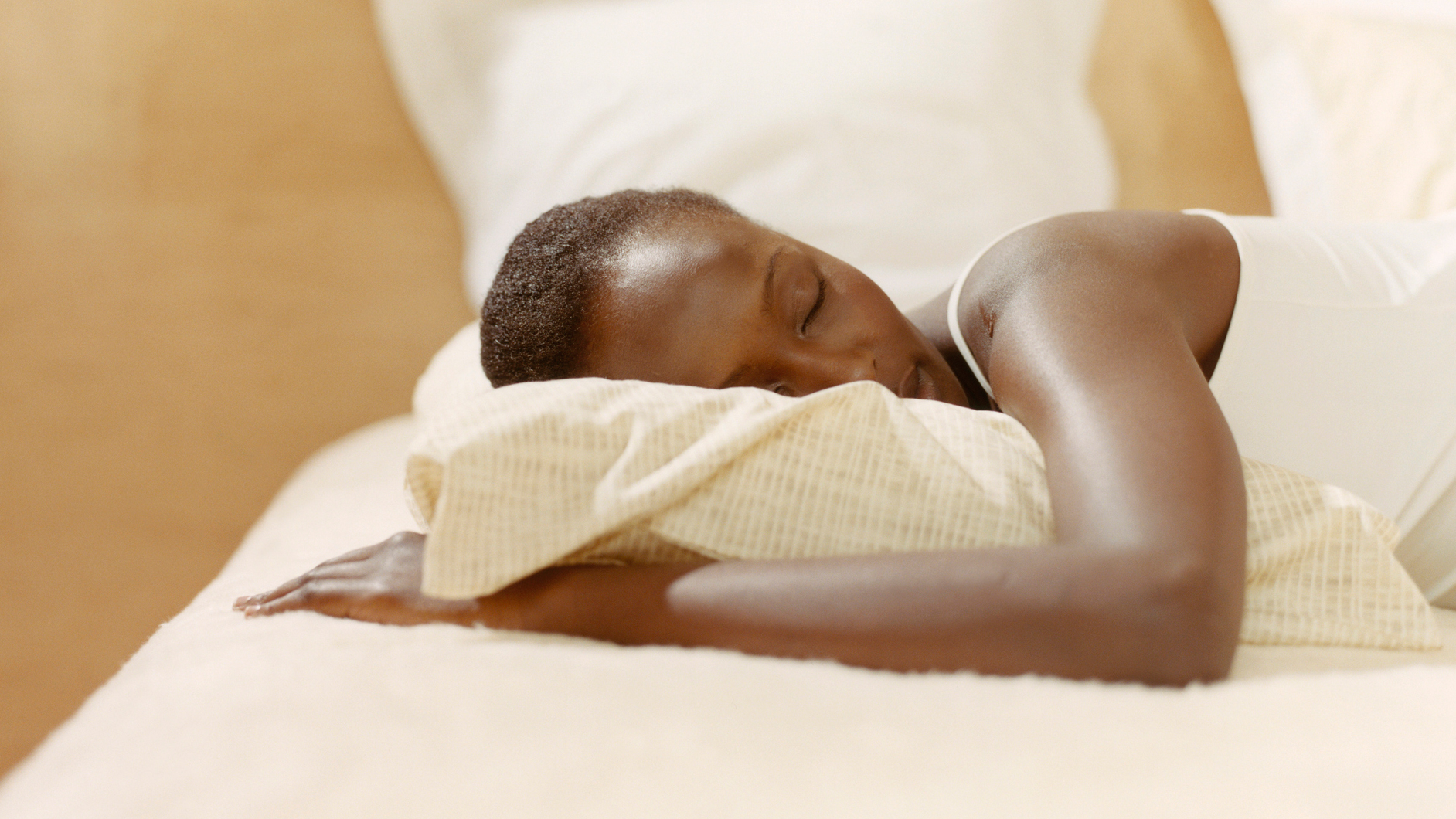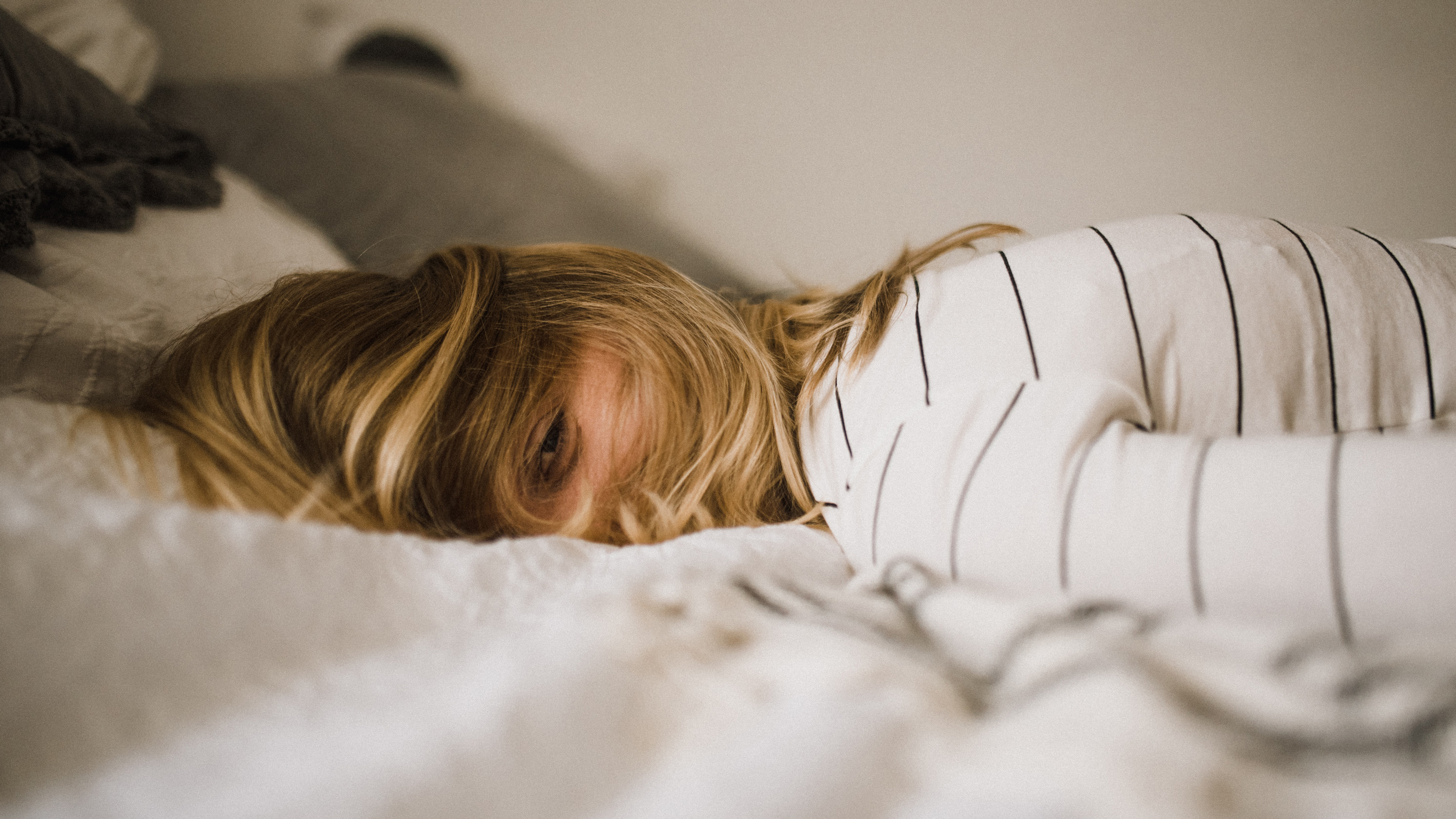Better sleep: One life hack researchers recommend for good sleep every night
How CBT can change the way we sleep with this simple bedtime routine


Start your week with achievable workout ideas, health tips and wellbeing advice in your inbox.
You are now subscribed
Your newsletter sign-up was successful
Do you lie awake at night, struggling to sleep? Perhaps you don't go to bed until the small hours, or have to get out of bed to read a book for half an hour or so in the wee hours when you can't get back to sleep. Whatever your particular night-time issue, disturbed sleep is an enormous problem. To give you the scope of the problem, 68 percent of people in a Consumer Reports survey of 4,023 U.S. adults said they struggled with sleep at least once a week.
- NEW: Watch: 30 minute upper-body strength workout for beginners
- Fall asleep fast: 11 tried and tested hacks to try tonight
But before you turn to over-the-counter medication, alcohol or other ways to help you induce sleep, it's worth trying this method first. Published in a report by Harvard University Medical School, researchers recommend using cognitive behavioural therapy, or CBT, to try and get yourself to sleep at the same time every night.
CBT is a blanket term for any therapeutic technique used to change our behaviour, usually involving regular practice on behalf of the patient rather than weekly sessions on the couch. The Harvard report suggests CBT, if practiced regularly, could be more effective than sleeping pills when it comes to inducing sleep in insomniacs.
This method is known as sleep restriction, which "requires you to adopt a sleeping period with a set time for going to bed and a set time to get up—no matter what" according to Harvard.
For example, you could set yourself a challenge for the next seven days: to be in bed, lights out, at 11pm sharp, setting your alarm for 6am the next day. No lie-ins and no irregularities.

Over time, a strict sleep schedule is said to to associate that time of the evening with sleeping, helping you to create new behavioural patterns in your brain. It might help to think of your brain as a puppy that needs a stable routine, to encourage it to sleep when you want it to.
Dr John Winkelman, a sleep specialist at Brigham and Women's Hospital and associate professor of psychiatry at Harvard Medical School, said: "Sleep restriction trains the body to be ready to sleep when you get to bed." For serious insomniacs, he recommends initially creating a shorter bedtime routine, such as 12am-6am, and gradually extending it to a healthy amount of sleep once your body begins to settle into a routine.
Start your week with achievable workout ideas, health tips and wellbeing advice in your inbox.
As well as a dedicated sleep routine, Dr Winkelman also recommends the following healthy behaviours to improve your sleep habits:
- Avoid daytime naps
- Don't drink alcohol within five hours of bedtime, as it interferes with your sleep cycle and causes you to wake up frequently.
- Avoid caffeine (coffee, tea, soda, chocolate) after noon, including tea, coffee, soda and chocolate.
- Face your clock away from the bed so you're not "counting down the minutes" until morning.
- Exercise daily, if you can.
- Schedule "worry time" earlier in the day to consider and resolve the day's problems before getting into bed.
You could also try using a weighted blanket. Participants of a recent by researchers at the American Academy of Sleep Medicine who used one over a four-week period reported reduced insomnia, higher daytime activity levels, and reduced symptoms of fatigue, depression and anxiety.
Liked this?
Matt Evans is an experienced health and fitness journalist and is currently Fitness and Wellbeing Editor at TechRadar, covering all things exercise and nutrition on Fit&Well's tech-focused sister site. Matt originally discovered exercise through martial arts: he holds a black belt in Karate and remains a keen runner, gym-goer, and infrequent yogi. His top fitness tip? Stretch.
